The Accuracy of Scripture: Part I – The Old Testament
What makes evaluating the accuracy of the Scriptures so significant is that you’re not merely gauging the accuracy of the content, you’re having to answer the question, “Did God write the Bible?” While you can certify the Word of God as being credible from the standpoint of archeology and the tests you utilize in the verification of works of antiquity, the Bible doesn’t claim to be merely “accurate.” Rather, it asserts its content as having the ability to supernaturally transform lives as a result of being “God breathed” (2 Tim 3:16-17). In other words, it’s the origin of the Bible that makes it significant and not only its credibility.
How can you be certain that the Bible is the inerrant, Word of God? What prevents a person from either dismissing it as a pointless work of antiquity or an infallible text, but only in the context of theological matters? How can you know that the Bible, as we have it today, is precisely what was dictated by God and its Message is totally correct, complete and without error?
It boils down to two different disciplines: Academia and Faith. One is purely empirical, the other requires an acknowledgement of the fact that some things cannot be quantified due to the limitations of the human paradigm. Scientists refer to it as intellectual extrapolation, those who consider themselves religious call it faith. Either way, it is the aligning of the readily accessible facts and following their trajectory beyond that which can be known experientially.
From an academic perspective, you look at Scripture from the standpoint of three dynamics:
- Content – is the content accurate? Do the prophecies recorded in Daniel actually describe what happened several hundred years later? Can the claims of Scripture be validated scientifically?
- Construction – how was the Bible compiled and preserved? What was the criteria used to define a particular writing as sacred?
- Consistency – do the copies we have today match up with the early manuscripts?
Let’s start with the Old Testament.
II) The Old Testament
A) Content
1) Fulfilled Prophecy
Deuteronomy 18:19-22 says:
I myself will call to account anyone who does not listen to my words that the prophet speaks in my name. 20 But a prophet who presumes to speak in my name anything I have not commanded, or a prophet who speaks in the name of other gods, is to be put to death.”
21 You may say to yourselves, “How can we know when a message has not been spoken by the Lord?” 22 If what a prophet proclaims in the name of the Lord does not take place or come true, that is a message the Lord has not spoken. That prophet has spoken presumptuously, so do not be alarmed. (Dt 18:19-22)
Scripture cuts itself absolutely no slack. It’s almost foolhardy in the way it sets its own guidelines when it comes to foretelling the future. Bottom line: If it doesn’t happen, that prophet is to be put to death.
The book of Daniel contains one of the most detailed prophetic messages that deal with the future of Israel in the context of world events. Specifically, it outlines how the then Persian government would be absorbed into the Grecian Empire which would then be divided into four main kingdoms.
While some want to doubt the authenticity of Daniel as being legitimately prophetic, the language of Daniel argues for a date earlier than the second century. There’s no good reason to doubt that Daniel was written around 530 B.C. and the events described in Daniel 11 – specifically the Greek victory over Persia which happened in 449 B.C. and the division of Alexander the Great’s kingdom in 323 B.C. You can read more about this in the sidebar to the right.
The prophecy of Daniel 11 begins with the prediction that “three more kings will arise in Persia” followed by a fourth who would “stir up all against the realm of Greece” (verse 2). Biblical resources, such as The Expositor’s Bible Commentary, provide the historical explanations for this prophecy. Regarding this verse, Expositor’s states, “The Persian king who invaded Greece was, of course, Xerxes, who reigned 485-464 B.C.”
Daniel 11:3-4 speaks of the appearance of “a mighty king,” whose kingdom would “be broken up and divided toward the four winds of heaven.” Expositor’s explains, “Verse 3 introduces us to the next phase in world empires: the rise of Alexander the Great. Although this verse does not make it altogether clear that this ‘mighty king’ would inaugurate a new empire in place of the Persian one, verse 4 leaves us in no doubt that he was the ruler predicted here. …
“In seven or eight years he accomplished the most dazzling military conquest in human history. But he lived only four years more; and after one of his drunken bouts, he died of a fever in 323 in the imperial capital of Babylon. Verse 4 foretells the division of Alexander’s domains among four smaller and weaker empires.”
Following Alexander’s death, his empire was divided among four of his generals. These four kingdoms and their rulers were Macedonia-Greece under Antipater and his son, Thrace–Asia Minor under Lysimachus, the rest of Asia except lower Syria and Palestine under Seleucus Nicator, and Egypt and Palestine under Ptolemy.
The remainder of Daniel 11:5-39 then documents the actions of the last two of these kingdoms—Egypt to the south of Jerusalem (the location of Daniel’s people, the Jews, Daniel 10:14) and Syria to the north of Jerusalem. In this section of Scripture the rulers and their successors are referred to as the “king of the North” and the “king of the South.”1
Daniel’s prophecy about Greece is one of many prophecies in the OT. You have prophetic messages being proclaimed pertaining to several cities, specific government officials and even specific military tactics. Josh McDowell’s book “Evidence That Demands a Verdict” devotes an entire section to Old Testament prophecy and it is a fascinating read.
One prophecy that McDowell references is the prophecy made by Nahum pertaining to the city of Nineveh.
Nineveh was the capital city of the Assyrian empire. It was an impregnable center of military might – the kind of stronghold you would expect to be the capital city of the most powerful empire in the ancient world at that time
Nahum, in stark contrast, is a single individual belonging to a conquered people. For him to be proclaiming a message that translates to Nineveh’s ruin is ridiculous if not potentially lethal.
To give you an idea as to Nineveh’s size and overall presence, understand that the walls surrounding it were over a 100 feet high and wide enough to accommodate three chariots driving side by side. And this is just the first wall. You had two other walls reinforcing the first separated by a deep ditch. According to excavated remains, the distance from the inside of the inner wall to the inside of the outer wall was 2,007 feet or just under half a mile.
Nahum declares that Nineveh would…
- Be destroyed in a state of drunkenness (1:10)
- Would be destroyed in “an overwhelming flood” (1:8; 2:6)
- Would be burned (3:13)
- Would be totally destroyed and become desolate (3:19)
Nineveh was attacked by a force consisting of Babylonians, Medes and Scythians. Here’s the account of the battle for Nineveh in the words of Lenormant and E. Chevallier in their book, “The Rise and Fall of Assyria:”
In 612 B.C. Nabopolassar united the Babylonian army with an army of Medes and Scythians and led a campaign which captured the Assyrian citadels in the North. The Babylonian army laid siege to Nineveh, but the walls of the city were too strong for battering rams, so they decided to try and starve the people out. A famous oracle had been given that “Nineveh should never be taken until the river became its enemy.” After a three month siege, “rain fell in such abundance that the waters of the Tigris inundated part of the city and overturned one of its walls for a distance of twenty stades. Then the King, convinced that the oracle was accomplished and despairing of any means of escape, to avoid falling alive into the enemy’s hands constructed in his palace an immense funeral pyre, placed on it his gold and silver and his royal robes, and then, shutting himself up with his wives and eunuchs in a chamber formed in the midst of the pile, disappeared in the flames. Nineveh opened its gates to the besiegers, but this tardy submission did not save the proud city. It was pillaged and burned, and then razed to the ground so completely as to evidence the implacable hatred enkindled in the minds of subject nations by the fierce and cruel Assyrian government.2
And in an account from “Diodorus of Sicily II,” we read of how the king of Assyria was overly confident in his city’s defenses, despite the presence of an enemy force camped just outside its walls. He began to indulge with his soldiers and in a feast that included a significant amount of food and alcohol. News of this reached the ears of Arbaces, the enemy general through deserts and a night attack was scheduled. Not long after, thanks to the walls that were now vulnerable as a result of the rain, Arbaces was able to take the city of Nineveh.3
3) Scientifically Validated
It wasn’t until the Enlightenment that the inerrant dynamic of Scripture was questioned.4 Independent thinking evolved into a scenario where the Authority of Scripture was cast off should its content prove to be inconsistent with current scientific trends or even personal preferences. Darwinism took it a step further by providing a scientific sounding platform that gave atheists more reason to dismiss God from their thinking as well as their lives.
As has been mentioned earlier, Scripture doesn’t claim to merely accurate. Even in the Psalms, you hear David referring to the “law of the Lord” as perfect (Ps 19:7 [see sidebar]). That includes theological matters as well as scientific. Consider some of what the Bible has to say about the physical world:
ASTRONOMY: The Bible claims the universe had a beginning. Philosophers and scientists rejected that claim for over two thousand years, but now astronomers believe the universe had a beginning, the so-called big bang (though with a very different time frame).
ANTHROPOLOGY: The Bible claims that all humans are “one blood” descended from one man and one woman (Acts 17:26; 1 Corinthians 15:45; Genesis 3:20). Some nineteenth-century biologists argued that different races descended from lower animals, but today genetics has verified that there is only one human race.
BIOLOGY: The Bible claims that God created animals “after their kind.” Nineteenth-century biologists argued that animals evolved from other, very different animals, but today biology confirms that creatures reproduce within their own kind.
GEOLOGY: The Bible claims that God destroyed the earth and the creatures inhabiting it in the worldwide Flood. Nineteenth-century geologists argued that rock layers and the fossils found in them were formed as sediments were deposited slowly, but today geology confirms that many rock layers were deposited catastrophically, burying fossils within only minutes or hours.5
4) Archeology
In addition to the archaeological finds that have validated the prophecies made by Daniel and Nahum, you can find several other examples of the historical accuracy represented by the Old Testament.
William F. Albright, known for his reputation as one of the great archaeologists, states, “There can be no doubt that archaeology has confirmed the substantial historicity of Old Testament tradition.”6
There have been a number of discoveries that not only validated the Old Testament, but corrected the disposition of critics who insisted that the Bible was flawed:
- Isaiah 20:1 was challenged by critics because they knew of no king named Sargon in lists of Assyrian kings. Now Sargon’s palace has been recovered at Khorsabad, including a wall inscription and a library record endorsing the battle against the Philistine city of Ashdod (mentioned in Isaiah 20:1).
- Nebuchadnezzar was a fictional character in the minds of some until his palace and library were uncovered.
- Sanballat was, as the Bible says, the Governor of Samaria (Nehemiah 4 and 6), though it was claimed by many writers that Sanballat was much later than Nehemiah. Several Sanballats are now known, and recovered letters even refer to Johanan (Nehemiah 12:13). Geshem the Arab (Nehemiah 6) is also known. Despite longstanding criticisms, Ezra and Nehemiah are accurate records of an actual historical situation.7
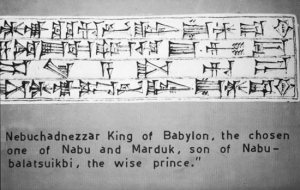 You can read more about the discoveries that have been unearthed that reiterate what is documented at websites like “AnswersInGenesis.com.”
You can read more about the discoveries that have been unearthed that reiterate what is documented at websites like “AnswersInGenesis.com.”
B) Construction – a Very Short List
The word, “Canon” literally means “reed.” In the ancient world, the reed was used as a measuring tool and it came to mean “standard.”
There were a great number of writings during Israel’s history, but not all of them were regarded as sacred. It’s interesting to note the centuries of silence that occurred between the timeframe addressed in the book of Malachi and the birth of Christ. In some ways, this highlights the credibility of Scripture in that while you still have authors publishing content, because of it being devoid of Inspiration expressed in the “voice of the prophets,” the Hebrews refused to accept it as Divine.
You see this reflected in the Babylonian Talmud which is a record of discussions between prominent Jewish religious authorities pertaining to all things spiritual (see sidebar). In the context of those conversations, they state that it was during this time that no Divinely Inspired individual had surfaced, thus rendering all documentation that was common during this time to be purely human in origin and substance.
The Babylonian Talmud – By the middle of the Fourth Century, Christian persecution in Eretz Israel caused the remainder of the sages to immigrate to Babylonia. For the first time since the Babylonian Exile nearly 800 years previously, all Torah scholarship was concentrated in one area. Led by Abaye and Rava, this august assembly debated new cases, analyzing decisions and explanations of earlier Amoraim, checking them for inconsistencies, and provided explanatory comments on the Mishnah. These discussions were fixed in a formalized lexicon, and form the bulk of the Babylonian Talmud (Chabad.org, “The Babylonian Talmud”, accessed April 8, 2017, [click here to view link])
Our Rabbis taught: Since the death of the last prophets, Haggai, Zechariah and Malachai, the Holy Spirit [of prophetic inspiration] departed from Israel; yet they were still able to avail themselves of the Bath-kol.8
In the Apocrypha itself, written in the “Prayer of Azariah,” chapter 1, verse 15:
And at this time there is no prince, or prophet, or leader, no burnt offering, or sacrifice, or oblation, or incense, no place to make an offering before thee to find mercy. (Prayer of Azariah 1:15)
A reference to the fact that nothing “prophetic” was being documented, let alone spoken.
You see this referenced also in the words of Josephus, a Jewish historian that lived between 37 and 100 AD:
We have not myriads of books, disagreeing and conflicting with one another, but only twenty-two, containing the record of all time, and justly accredited. Of these, five are the books of Moses, containing the laws and the history handed down from the creation of the human race right to his own death. This period falls a little short of three thousand years. From the death of Moses to the time of Artaxerxes, who was king of Persia after Xerxes, the prophets who followed Moses have written down in thirteen books the things that were done in their days. The remaining four books contain hymns to God and principles of life for human beings. From Artaxerxes to our own time a detailed record has been made, but this has not been thought worthy of equal credit with the earlier records because there has not been since then the exact succession of prophets.9
He mentions 22 books. That’s significant. The twenty-two that he’s referring to are the books that both Jews and Christians regard as Canonical (the Jews group the books of the OT differently). The Apocrypha – that section of Scripture you find in Bibles belonging to Roman Catholics – is not considered Inspired. And it’s not just because of the historical and geographical inaccuracies that compromise its substance. Despite the fact that Jesus and the New Testament writers prolifically quote from the canonical Old Testament, never once do they quote from the Apocrypha. In the end, it is a collection of writings that come from a perspective other than the Inspired View and Mindset of a prophet – and that is what defines a particular book in Scripture as Divine.
Some doubt the content of Scripture, believing it to be a patchwork of judiciously selected writings that happened to corroborate a message that could be used to manipulate the masses. But when you look at the criteria that was used to identify the books of the Bible, the end result is a very, very short list because of the required prophetic credential as well as the necessary fulfillment of any prophecy that was articulated. The Old Testament is what it is, not because of preferences or subjective rulings, but because of the substance of the content and the proven credibility of the human author.
C) Consistency
Up to this point we’ve discussed things pertaining to the OT’s content and construction that provide a compelling collection of facts and information that reinforce the “logic” behind one’s belief that the Bible is everything it claims to be. But what about the notion that while the OId Testament was accurate when it was first documented, it has since been corrupted and edited to the point where it’s doubtful we have an accurate copy of what was originally drafted.
That disposition is laid to rest conclusively once you take a look at the precision and the diligence that was used by the Talmudists and the Massoretes when it came to the copying of the Old Testament.
After the Fall of Jerusalem, the Jews were especially adamant about preserving the Word of God. It was during this time that the Council of Jamnia was convened where some questions as to the Inspired dynamic of some of the books in the “Writings” category (Proverbs, Ecclesiastes, Esther and Song of Songs) were finally settled. There wasn’t that much to discuss, but what makes the Council significant is that many of the conversations were recorded and the Canon of the Old Testament is documented as final and complete at that that time.
Beginning shortly thereafter, the Talmudists became responsible for the preservation of the Old Testament. They followed a number of rules in the context of discharging their duties which were nothing short of intensely detailed.
The Talmudists had seventeen precise rules which had to be followed in copying the scriptures; some of which were: A synagogue roll must be written on the skins of clean animals, cut to a specific length and tied together with string taken from clean animals. The length of each column could not be over 60 lines and the breadth had to be 30 letters. There were precise rules about the ink. Not one word or even accent could be written from memory. Between every consonant there had to be a space the width of a thread. Between each parashah (paragraph?) there had to be the space of 9 consonants. The 5th book of Moses had to terminate precisely at the end of the line. The copyist had to have bathed that day and be wearing his full Jewish attire. If while writing the tetragramaton a king should speak to him, he must not take notice of him.11
From 500-900 A.D. the Massoretes (pronounced “MASS-oh-reets”) took over the copying of the text and standardizing it. It is the text used today. Their attention to detail was no less intense than their Talmudist counterparts.
Besides recording varieties of reading, tradition, or conjecture, the Massoretes undertook a number of calculations which do not enter into the ordinary sphere of textual criticism. They numbered the verses, words, and letters of every book. They calculated the middle word and the middle letter of each. They enumerated verses which contained all the letters of the alphabet, or a certain number of them ; and so on. These trivialities, as we may rightly consider them, had yet the effect of securing minute attention to the precise transmission of the text ; and they are but an excessive manifestation of a respect for the sacred Scriptures which in itself deserves nothing but praise. The Massoretes were indeed anxious that not one jot nor tittle — not one smallest letter nor one tiny part of a letter — of the Law should pass away or be lost.12
While the passion of the Talmudists and the Massoretes is admirable, it’s not necessarily conclusive as far as proving that what we have today is an accurate copy of the original given the fact that up until 1947, the oldest handwritten copy of the Old Testament was 900 A.D. When the Dead Sea Scrolls were discovered, experts and scholars were thrilled to learn that the scrolls had been dated to around 125 B.C.. When the two manuscripts were compared to one another, the consistency was nothing short of noteworthy. This is why the Dead Sea Scroll discovery is so significant – because of the way in which the Old Testament was validated by comparing two manuscripts that were written 1,000 years apart and still matched almost word or word. The discrepancies were differences in spelling and nothing more:
Gleason Archer (noted author and scholar) states that the Isaiah copies of the Qumran community “proved to be word for word identical with our standard Hebrew Bible in more than 95 percent of the text. The 5 percent of variation consisted chiefly of obvious slips of the pen and variations in spelling.13
III) Conclusion
Inerrancy is not a new issue. Several of the early church fathers mention the flawlessness of Scripture:
You have searched the holy scriptures, which are true, which were given by the Holy Spirit; you know that nothing unrighteous or counterfeit is written in them. (Clement of Rome)14
The Scriptures are indeed perfect. (Iraneus)15
The Scriptures have never erred…The Scriptures cannot err. (Martin Luther)16
The statements of holy Scripture will never be discordant with truth. (Tertullian)17
The Scriptures are holy, they are truthful, they are blameless. (Augustine)18
If anyone preaches either concerning Christ or concerning his church or concerning any other matter which pertains to our faith and life; I will not say, if we, but what Paul adds, if an angel from heaven should preach to you anything besides what you have received in the Scriptures of the Law and of the Gospels, let him be anathema. (Augustine) 19
For I am sure that if I say anything which is undoubtedly contradictory to holy Scripture, it is wrong; and if I become aware of such a contradiction, I do not wish to hold that opinion. (Anselm of Canterbury) 20
Archeology, Science, Textual Attestation – it’s all there. There is no good reason to doubt the authenticity of the Old Testament.
Still, to accept the Bible as Divine requires more than just what can be gauged by the senses. To embrace something as supernatural, you have to deploy the same kind of intellectual extrapolation that scientists do when confronted with things such as the boundary of the cosmos or the origin of gravity. Some things we are just not capable of quantifying simply because it lies beyond the human capacity to measure or observe. That’s not to say we can’t make intelligent assessments, but there is, in some instances, an empirical certainty that exists beyond the limitations of the human paradigm. The empirical dots that can be connected are those that exist in terms of that which happened in the past. Our perspective is that of a rear view mirror. We can’t stop the car and witness those events in the present and build our convictions on having personally witnessed the parting of the Red Sea or the Resurrection. It’s in those moments when we have to place our trust in something we cannot see. The Bible calls this faith.
The Bible says in Hebrews 11:6 that without faith, it’s impossible to please God. Not because He expects you to disengage your intellect when surmising the evidence that validates His Identity and His Word, but because there are historical realities that cannot be observed today, only accepted as fact based on the evidence those events have left in their wake. In other words, we have to be willing to go forward in our convictions based on what we cannot see.
To embrace the Bible as nothing more than a fascinating text is to strip it of the Role it asserts as the Word of God. And it’s not just for the sake of information as much as it’s about the supernatural transformation that occurs when you realize that His Word is His Message to you personally (1 Cor 13:12; Jas 1:23).
God, through the Scriptures, requires a response beyond a positive intellectual endorsement. It asks for the kind of obedience that God Himself facilitates through you by His Spirit (Phil 2:13). You become the permanent home for His Holy Spirit by accepting the Message He proclaims in His Word (Rom 10:17) and that ultimately requires faith.
Consequently, faith comes from hearing the message, and the message is heard through the word about Christ. (Rom 10:17)
Not a blind faith, but faith nonetheless. Faith in Him, what He can do and…
…the Integrity, the Substance and the Truth of His Inerrant Word.
1. “Life, Hope and Truth”, “Daniel 11: The Most Detailed Prophecy in the Bible”, https://lifehopeandtruth.com/prophecy/understanding-the-book-of-daniel/daniel-11/, accessed April 8, 2017
2. “The Rise and Fall of Assyria”, Lenormant and E. Chevallier, LM Publishers
3. “Evidence That Demands a Verdict”, Josh McDowell, Thomas Nelson Publishers, Nashville, TN, 1979, p299
4. Stanford Encyclopedia of Philosophy, “Enlightenment” https://plato.stanford.edu/entries/enlightenment/, accessed April 8, 2017
5. AnswersInGenesis, “Scientific Accuracy”, https://answersingenesis.org/is-the-bible-true/5-scientific-accuracy/, accessed April 8, 2017
6. “Evidence That Demands a Verdict”, Josh McDowell, Thomas Nelson Publishers, Nashville, TN, 1979, p65
7. AnswersInGenesis, “Does Archaeology Support the Bible”, https://answersingenesis.org/archaeology/does-archaeology-support-the-bible/, accessed April 8, 2017
8. Babylonian Talmud: Tractate Sanhedrin, http://www.come-and-hear.com/sanhedrin/sanhedrin_11.html, accessed April 8, 2017
9. F. F. Bruce. The Canon of Scripture (Kindle Locations 218-223). Kindle Edition.
10. Ibid, Kindle Locations 212-214
11.Calvary Independent Baptist Church, “Is the Old Testament Reliable?”, http://www.idahobaptist.com/apologetics/apo-7.htm, accessed April 8, 2017 [see also “Evidence That Demands a Verdict, p53
12. “Our Bible and the Ancient Manuscripts”, Fredrick George Kenyon, Eyre and Spottiswoode, London, England, 1897, p33
13. 10. “Evidence That Demands a Verdict”, Josh McDowell, Thomas Nelson Publishers, Nashville, TN, 1979, p58
14. “The Apostolic Fathers: Greek Texts and English Translations”, Michael W. Holmes, Baker Academic, Grand Rapids, MI, 2007, p104
15. “Do Historical Matters Matter to Faith?”, James K. Hoffmeier and Dennis R. Magary, Crossway, Wheaton, IL, 2007, p140
16. Christian Theology, Millard J. Erickson, Baker Academic, Grand Rapids, MI, 1998, p252
17. “The Inerrant Word: Biblical, Historical, Theological and Pastoral Perspectives”, John MacArthur Crossway,
18. Ibid
19. Ibid
20. Ibid

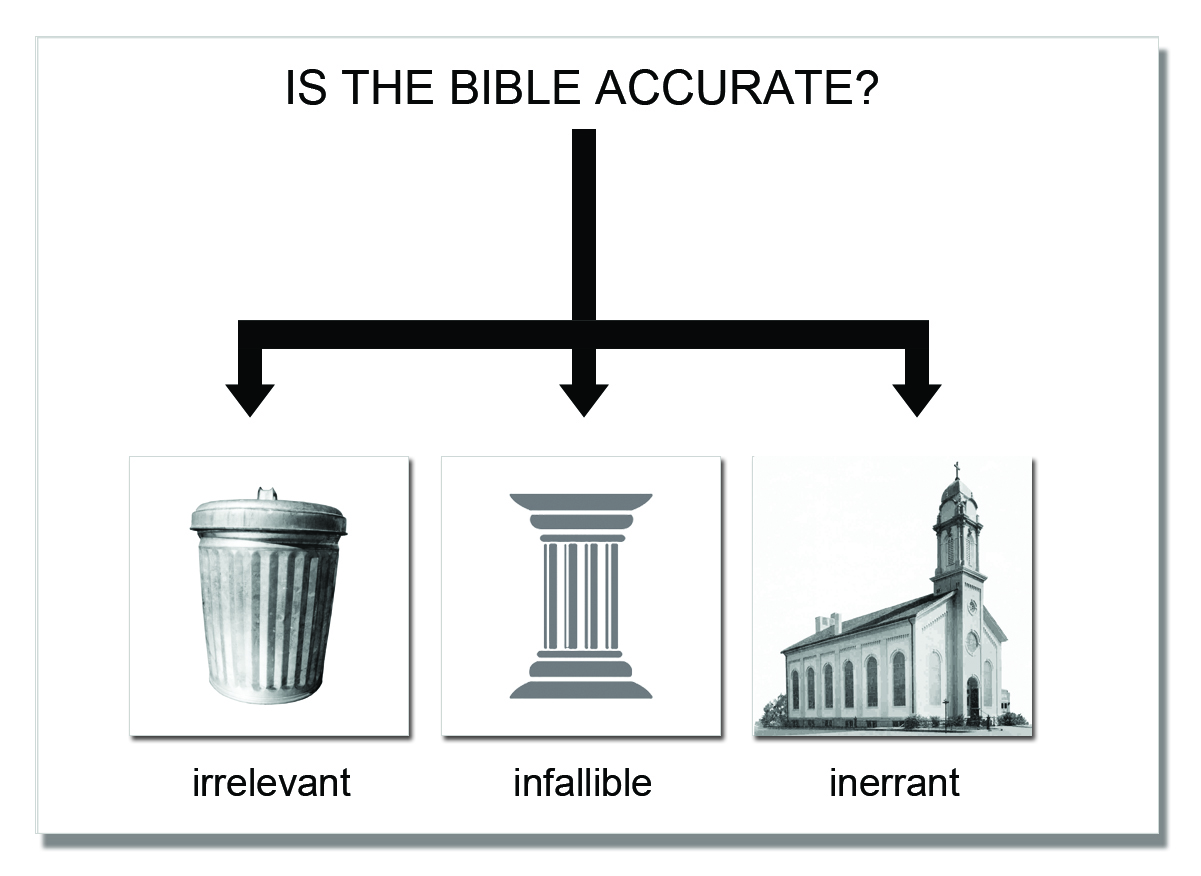
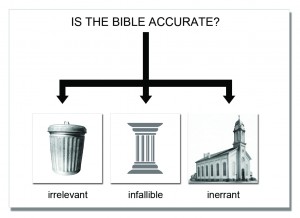


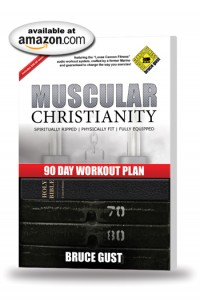



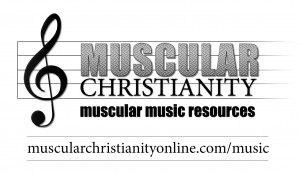
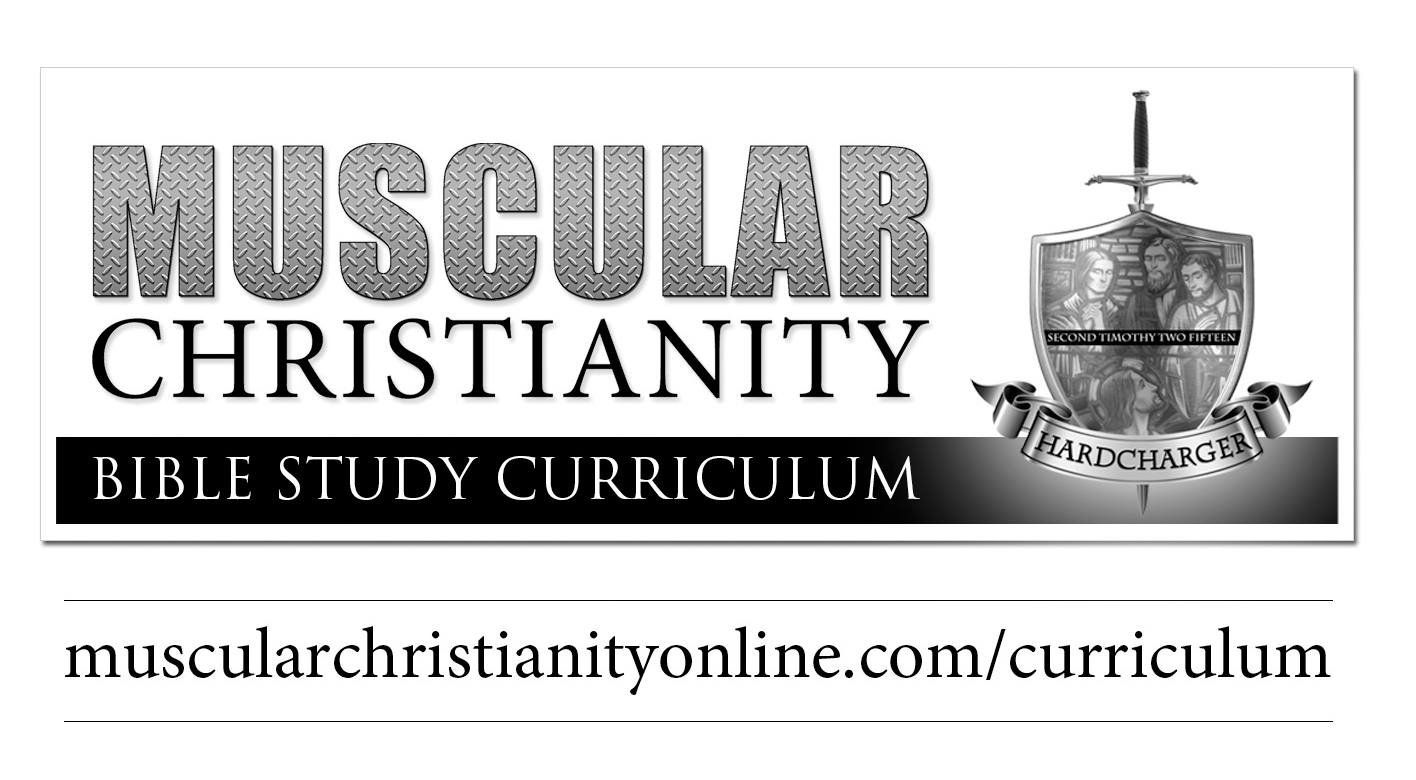
 The great thing about God’s Word is it never loses its novelty in the way it Inspires and Motivates.
The great thing about God’s Word is it never loses its novelty in the way it Inspires and Motivates.
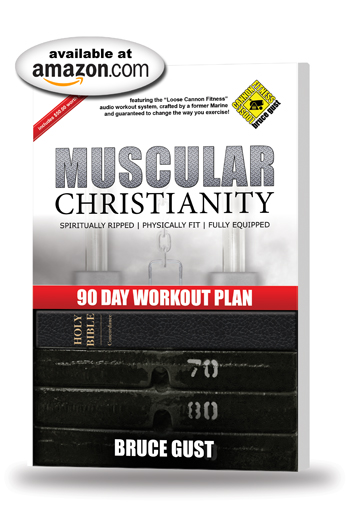











You must be logged in to post a comment.